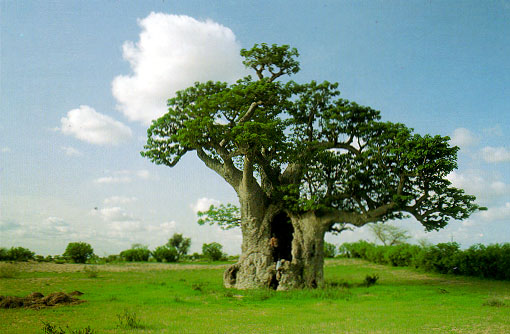 Baobab, popularly known as the iconic tree of Africa will be the first of the 100 orphaned crops that will be genetically mapped by the Africa orphan crops academy, in a bid to create better and high quality seeds for a crop that has been faced by extinction.
Baobab, popularly known as the iconic tree of Africa will be the first of the 100 orphaned crops that will be genetically mapped by the Africa orphan crops academy, in a bid to create better and high quality seeds for a crop that has been faced by extinction.
The baobab tree, which is found across sub-Saharan Africa, is high in Vitamin C and other nutrients. Its leaves are eaten as vegetables in West Africa, while its pulp is incorporated into porridge, juices, and other food products across the continent. The pulp can also be used by food processors for cooking oil, ice cream, sodas, energy bars, cookies, jams and even cosmetic products.
But the tree has been faced with imminent threat of extinction due to illegal logging. "Indigenous crop research has lagged behind in Africa with both international and local institutions phasing in maize, wheat, and a small range of pulses. Seed companies have also concentrated on the same crops, which have high turnover both in volume and sales. This has resulted in improved indigenous crops not being available to farming communities," Kenya's Agriculture Secretary Felix Koskei said during a speech at the World Agroforestry Center, a global CGIAR research centers.
Once the baobab has been sequenced, plant breeders will be able select baobab lines that have high nutritional value and grow well.
Allen Van Deynze, Director of Research at the University of California–Davis Seed Biotechnology Center said that crops take six to nine months to sequence depending on the complexity of the plant. Each crop in the program will have 100 different lines sequenced to give breeders information on the diverse characteristics of the crop. “The diversity [of the baobab] is incredible,” said Van Deynze. “I’ve seen tiny pods to very large pods […] and the nutritional content is quite different between those.”
Breeders will be able to select baobab lines that have high nutritional value and grow well. The baobab produces during droughts while other crops fail. However, Sequencing of the baobab began in July; the first few lines are already complete, while sequencing of finger millet and the African eggplant has also begun.
The information will be put into a genetic bank with the National Center for Biotechnology Information and backed up by both the Beijing Genomics Institute and the World Agroforestry Center. Once the genome is complete, interested breeders can create an account with the virtual organization iPlant Collaborative and search the database for certain traits.
The information is provided freely to benefit as many African breeders as possible who would not access it if a cost was placed on the generated information. Other crops to be sequenced include finger millet, the African eggplant, okra, amaranth, guava, taro, jackfruit, acacia, chocolate berries, shea butter, sweet bush mango and groundnut.
The African Orphan Crops Consortium is also be heavily involved in training African plant breeders, many whom work for national research institutes, in genomics and marker-assisted selection for crop improvement.
















Comments powered by CComment